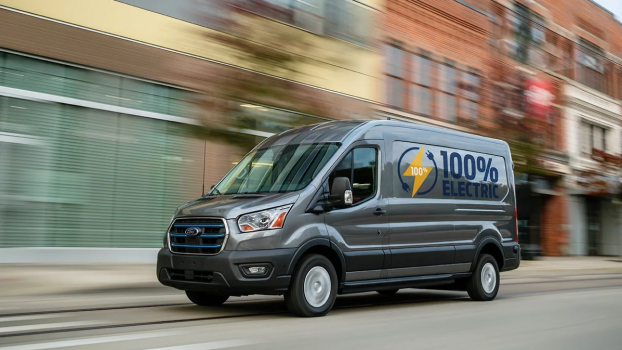
Is Ford getting off the oil needle?
In 2022, the production of the Ford Transit electric van will begin in Russia. Until now, electric cars have not been mass-produced in our country. Sollers, which controls the joint production (in Russia) with Ford, is counting on demand from e-commerce in Moscow and cities with millions of people. In 2022, Sollers plans to launch production of the electric Ford Transit in Russia in parallel with the main diesel platform. Ford Motor declassified the light commercial (LCV) Transit with an electric powertrain in November 2020, announcing the start of production in 2022. In addition to the United States, production was announced on the Turkish Ford Otosan with a focus on Europe.
In Russia, Ford Transit is produced at the site in Yelabuga (Tatarstan). As part of the strategy, Ford Motor is gradually abandoning the development of platforms with an internal combustion engine, but it does not plan to stop their production. Diesel engines for Transit will also be produced in the Russian Federation — Sollers Ford purchased a plant in Yelabuga from Ford for this purpose.
Sollers estimates that the share of electric vehicles in LCV sales in Russia will be about 1.5% in 2022-2023 and will grow to 4% by 2025. So, GAZ intends to develop the GAZelle e-NN (in 2020, pre-production samples were released). "We already see demand for electric vehicles from a number of customers — the e-commerce segment and international companies operating in the Russian Federation, which use LCV for intra— city delivery, "Sollers says. The use of an electric motor reduces operating costs: "For example, E-Transit is 40% more economical than Diesel Transit. At the same time, Sollers recognizes that the use of machines will be limited — within the areas with the highest population density and the volume of intra-city logistics. In 2022-2023, these are Moscow, St. Petersburg, Kazan, and by 2025 — Samara, Nizhny Novgorod, Krasnodar, Rostov-on-Don, and Yekaterinburg.
Let's see how things will develop. But in any case, we hope that Russia will not stay away from the global trend of switching to electric motors.
Source - JSC "Kommersant".
